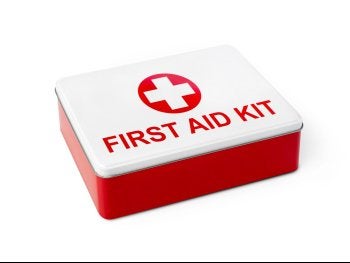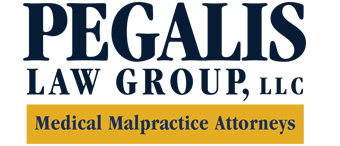-
Surprising Facts About Hospital-Acquired Infections
As the term suggests, hospital-acquired infections refer to any infection that a patient contracts while in the hospital. These infections do not include illnesses that a patient developed before going to the hospital. Sometimes, a hospital-acquired infection may be the result of medical malpractice. If you or a loved one develops pneumonia, surgical site infections, bloodstream infections, or other hospital-acquired infections, a medical malpractice lawyer can evaluate your case and explain your legal rights.
Hospital-Acquired Infections are Common

It’s a common misconception that this form of medical malpractice is rare. In fact, upwards of one million hospital-acquired infections occur in the U.S. each year. Hospital-acquired infections do not only affect patients who have undergone surgery; serious illnesses can develop in patients simply because of skin-to-skin contact. Furthermore, hospital-acquired infections can be deadly. In 2011, about 75,000 patients died of a hospital-acquired infection while they were still hospitalized, according to Everyday Health. This figure doesn’t include deaths that occurred after the patient was released from the hospital.
Bacterial Infections May Resist Antibiotic Treatment
You might think that if you acquire an infection, the best place to be is in a hospital because presumably, it can be diagnosed and treated rapidly. But in fact, many hospital-acquired infections are resistant to antibiotics. Each year, thousands of patients develop antibiotic-resistant diseases such as clostridium difficile (C-Diff) and Methicillin-resistant staphylococcus aureus (MRSA).
High-Touch Areas Can Harbor Microorganisms
Improper handwashing accounts for nearly half of all hospital-acquired infections. Yet, skin-to-skin contact isn’t the only culprit. Patients shouldn’t assume that high-touch areas such as bedrails, trays, and elevator buttons are sterilized regularly. When packing for a stay in the hospital, it’s a good idea to bring along sanitizing wipes.
The legal team at Pegalis & Erickson LLC has been dedicated to defending the legal rights of patients for more than 40 years. Our medical negligence lawyers have experience advocating on behalf of clients in cases involving hospital-acquired infections, birth trauma, wrongful death, and many others. If you would like one of our attorneys to review your case, you can contact our malpractice law firm in Long Island, New York at (516) 684-2900.
-
What Every Patient Needs to Know About Medical Malpractice Myths
Plenty of myths abound regarding medical malpractice claims, such as the myth that these types of lawsuits drive up the cost of healthcare for everyone and the belief that the majority of medical negligence lawsuits are baseless. Discovering the truth behind these common myths may change your perceptions of medical malpractice. If you feel you may have been affected by medical mistakes, you can contact a medical malpractice attorney to explore your legal options.
Myth: Malpractice Increases Healthcare Spending
This myth is commonly used by some lawmakers to justify establishing caps limiting the amount of medical malpractice payouts. Yet, medical malpractice represents only a very small fraction— less than half of one percent —of the total healthcare industry. In fact, medical malpractice itself is the culprit of increasing healthcare costs. Preventable medical mistakes cost billions annually because patients need additional medical care.
Myth: Most Malpractice Claims are Frivolous

Before a person can file a medical malpractice claim, certain elements must be present. It’s highly unlikely that a medical malpractice attorney would agree to represent a plaintiff who does not have a viable claim, given the costs involved with litigation. Additionally, some states require medical malpractice claims to go through a medical review process. Those that are not meritorious may be dismissed. In other words, the vast majority of malpractice complaints filed against providers are indeed meritorious—and many of them involve serious injuries or wrongful death.
Myth: Doctors Prefer to Avoid Settlements
Another common myth about medical malpractice is that doctors prefer to avoid settling lawsuits at all costs, presumably because this might cast doubt on their credibility. In actuality, settling a case is not an admission of liability on the part of the defendant.
If you have questions about medical malpractice claims, the legal team at Pegalis & Erickson LLC can provide the answers. To discuss your case, you can schedule a consultation with a medical malpractice lawyer serving Long Island, New York. Contact our malpractice law firm at (516) 684-2900 or browse our website to learn more about us.
-
How Handwashing Prevents Patient Infections
 Hospital-acquired infections are all too common, and quite often, they are preventable with simple measures. If you or a loved one has been hospitalized, you can serve as a patient advocate to reduce the risk of medical malpractice. It’s your right to ask that any healthcare provider who enters the room wash his or her hands prior to carrying out duties. It’s also highly advisable for family members of patients to wash their hands well before entering the patients’ rooms.
Hospital-acquired infections are all too common, and quite often, they are preventable with simple measures. If you or a loved one has been hospitalized, you can serve as a patient advocate to reduce the risk of medical malpractice. It’s your right to ask that any healthcare provider who enters the room wash his or her hands prior to carrying out duties. It’s also highly advisable for family members of patients to wash their hands well before entering the patients’ rooms. Handwashing can prevent a wide range of bacterial, viral, and other infections. The importance of this simple preventive measure is highlighted during National Handwashing Awareness Week from December 6 th through the 12 th in 2015. Healthcare providers are in contact with dozens of patients each day and can easily transmit microorganisms from one patient to the next. This can occur even if the healthcare worker wears sterile gloves. As with other forms of medical negligence, you could choose to consult a medical malpractice attorney if you believe that you’ve acquired an infection because a healthcare provider failed to follow handwashing protocol.
Pegalis & Erickson, LLC is a malpractice law firm in Long Island, New York with years of experience defending the rights of patients who have suffered from medical malpractice. You can reach our office at (516) 684-2900 to arrange a case review.
-
Reducing the Risk of Brachial Plexus Birth Injuries
The brachial plexus is a bundle of nerves located in the shoulder region. An injury to this network of nerves, known as a brachial plexus injury, can cause mild to severe symptoms that may be either temporary or permanent. Typically, the symptoms involve the loss of muscle control of the affected arm. A brachial plexus injury may occur at birth if the baby’s shoulder becomes lodged in the birth canal. Medical malpractice in the form of excessive physical maneuvers can result in a birth injury.
Prenatal Care

The risk of this form of birth trauma may be reduced if the expectant mother is given proper prenatal care. In fact, deviating from the standard of care for pregnant women is considered a form of medical malpractice. One of the risk factors of brachial plexus injuries is excessive weight gain of the mother during pregnancy. The healthcare provider should carefully monitor the mother’s weight gain and provide nutritional guidance as needed. The mother should be informed of the potential risks of excessive weight gain. Another controllable risk factor of brachial plexus injuries is gestational diabetes, which refers to the development of diabetes during pregnancy. Expectant mothers with gestational diabetes should be given extensive patient education on managing blood sugar levels to promote a healthy pregnancy, as well as a referral to high-risk doctors and nutritionists.
Cesarean Delivery
A C-section may be recommended for women with a high-risk pregnancy, such as when the baby is at a higher risk of developing a brachial plexus injury. The healthcare provider should assess the risk of the baby, such as by evaluating fetal size, and make appropriate recommendations. In the event that the labor and delivery is prolonged and excessive force might be required, the health care provider may be expected to recommend a C-section to prevent birth trauma.
The medical negligence lawyers of Pegalis & Erickson, LLC have years of experience helping families move forward after a birth injury diagnosis. If your child was diagnosed with a brachial plexus injury, you could consult our medical malpractice lawyer serving Long Island, New York to find out about your legal rights and options. To schedule a case review with a medical malpractice lawyer, call us at (516) 684-2900.
-
The Dangers of Delayed Breast Cancer Diagnoses
 Since October is Breast Cancer Awareness Month, medical negligence lawyers recommend that women take a few minutes to familiarize themselves with the basics of breast health. For example, you could talk to your doctor about the mammography guidelines that may apply to you. Mammograms are crucial because a delayed diagnosis of breast cancer will cause delays in treatment, and can cause a lesser chance of a cure. Some women may even wish to get a second opinion of their mammogram results if they suspect that the mammogram was not read properly. Women should also discuss breast sonograms in addition to mammograms if they have dense breasts or a palpable lump.
Since October is Breast Cancer Awareness Month, medical negligence lawyers recommend that women take a few minutes to familiarize themselves with the basics of breast health. For example, you could talk to your doctor about the mammography guidelines that may apply to you. Mammograms are crucial because a delayed diagnosis of breast cancer will cause delays in treatment, and can cause a lesser chance of a cure. Some women may even wish to get a second opinion of their mammogram results if they suspect that the mammogram was not read properly. Women should also discuss breast sonograms in addition to mammograms if they have dense breasts or a palpable lump. When medical malpractice leads to a delayed breast cancer diagnosis, women have a higher risk of dying from the disease. Any delays in treatment may give the cancer time to spread to the lymph nodes or other areas of the body, which makes it more difficult to successfully treat.
For more than 40 years, the medical negligence team at Pegalis & Erickson, LLC has been defending the legal rights of patients. Call our malpractice law firm in Long Island, New York at (516) 684-2900 to explore your legal rights and options.
-
Hospital Safety: Minimizing Risks and Recognizing Negligence

Did you know that about one-fourth of all hospitalized patients may suffer from a preventable medical error? These can include medication errors, surgical mistakes, and hospital-acquired infections. By learning about the potential for medical malpractice, patients can better protect themselves and family members can serve as effective advocates for their loved ones.
Consult Your Primary Care Physician
Hospitalizations aren’t always planned. However, if your situation isn’t an emergency, it’s a good idea to consult your primary care doctor before you check into the hospital. Ask your doctor whether you’ll need to change your medication regimen, bring medications with you to the hospital, change your diet, or have pre-admission tests. You can also ask him or her about the tests and procedures you can expect once you’re in the hospital.
Schedule Surgeries Carefully
Many people prefer to schedule surgeries for the weekend, since this gives them some extra time to recover before they take time off work the next week. However, hospital staffing is generally unfavorable on the weekends. If you check into the hospital on a Friday, you may not be as carefully monitored after the procedure. If possible, try to schedule your surgery for a Tuesday, Wednesday, or Thursday.
Recognize Possible Medical Negligence
Since it can be difficult to recognize medical malpractice, it’s a good idea to ask questions if you’re ever unsure of something. You could ask if you can get a second opinion for your diagnosis or imaging study interpretation. You can ask to double-check the names and dosages of all medications before a nurse administers them to you. And never hesitate to ask nurses or other providers to wash their hands when they enter your hospital room. Hospital-acquired infections are among the most common problems that hospitalized patients encounter.
If you or a loved one does sustain a health problem as a possible result of medical negligence, the patient advocates at Pegalis & Erickson, LLC are here to help. We are a malpractice law firm in Long Island, New York that provides compassionate and effective legal services for patients and their families. Call us at (516) 684-2900 if you would like to arrange a meeting with a medical malpractice lawyer.
-
Prostate Cancer Awareness
 Prostate cancer is among the most common types of cancer in the U.S. As with other types of cancer, early detection is preferable. By detecting prostate cancer early and understanding their options, men can make proactive decisions for their wellness. Unfortunately, some patients must cope with the consequences of delayed diagnosis or misdiagnosis, which are types of medical malpractice. By becoming better informed about prostate health, men may reduce the chances that they will suffer from the results of medical malpractice.
Prostate cancer is among the most common types of cancer in the U.S. As with other types of cancer, early detection is preferable. By detecting prostate cancer early and understanding their options, men can make proactive decisions for their wellness. Unfortunately, some patients must cope with the consequences of delayed diagnosis or misdiagnosis, which are types of medical malpractice. By becoming better informed about prostate health, men may reduce the chances that they will suffer from the results of medical malpractice. For example, it’s a good idea for men to ask their doctors about their risk factors of prostate cancer and to ask whether they should be screened, rather than to wait for the doctor to suggest it. Some risk factors include being 40 years old or older, being African-American, and having a family history of prostate cancer.
Have you or a loved one received a delayed diagnosis as a result of medical negligence in Long Island, New York? You can call Pegalis & Erickson, LLC, a malpractice law firm, at (516) 684-2900 to discuss your case with our personal injury lawyers.
-
Important Questions to Ask Before Surgery
From complex open surgeries to minimally-invasive laparoscopic procedures, every surgery has associated risks. Your surgeon and other members of the care team should serve as resources to help you minimize surgical risks, but certain situations can leave patients uninformed, resulting in medical negligence that leads to serious complications. To be sure that your surgical team is held accountable with higher standards of care for your upcoming procedure, ask the following questions during your pre-surgical consultation.
 Is this operation necessary?
Is this operation necessary?
You may be surprised how often surgery is recommended when alternative treatment modalities could produce equally effective results. Orthopedic surgeries in particular tend to be primarily elective surgeries, so it is always best to ask if a procedure is the best route for your treatment. If you are still unsure after consulting your surgeon, you can always seek a second opinion from another doctor.Who can I contact for follow-up questions?
It is likely that your surgeon will have a nurse coordinator or surgical liaison who will serve as the primary point of contact for your care, but surgeons in smaller practices will prefer direct communication. You should make sure that you know the preferred way to contact your surgeon after surgery so that you are able to ask questions as they come up in your recovery. You’ll also want to know if your surgeon will need to see you for follow-up appointments or if post-operative care can be left to your primary physician.What can I do to improve the outcome of surgery?
There are several steps that patients can take to improve their care. For example, quitting smoking and eating a healthy diet before and after surgery can significantly shorten the healing process and reduce complications. Discussing your medications with your doctor is also helpful, since certain medications and supplements might have adverse side effects with the surgery.If you have had medical complications or lost a loved one due to medical negligence, contact Pegalis & Erickson, LLC at (516) 684-2900 to schedule a free consultation. Our Long Island practice has more than 40 years of experience representing plaintiffs in medical malpractice cases, and we can help you seek the compensation you deserve for your case.
-
Essential First Aid Kit Items You Should Keep on Hand
Stay Safe Out There! Here is a list of the essential first aid kit items you should keep handy whether home or away.

- A list of medications you take with dosages
- An index card, preferably laminated that notes your emergency contact, doctors name and phone numbers, hospital preference, allergies, medical conditions, and blood type.
- Antiseptic ointment or spray
- Hand sanitizer
- Non latex gloves
- Tweezers to remove splinters or ticks
- Aloe Vera gel or burn spray
- Hydrocortisone cream
- Adhesive bandages, non stick gauze pads in small and large sizes, and a roll of first aid tape
- Triangle bandage
- Dissolvable Aspirin
- Instant Cold compress
-
Why You Should Familiarize Yourself with Procedures Before Surgery
In a perfect world, doctors would keep their patients fully informed and in-the-know about their care so that complications and risks are managed effectively for optimal patient safety. Unfortunately, patients are often undereducated on the surgical procedures that doctors might recommend. Therefore, you may need to explore your own resources with plenty of questions in pre-surgical consultations and online research to inform you about a given procedure. Below you can see exactly why you will want to invest the time to get to know a surgical procedure before you go under the knife.
 Understand possible surgical risks.
Understand possible surgical risks.
There is no surgical procedure that is without risks, even with modern advances in surgical care. Not only will you want to know which risks are a possibility with your surgery, but you will also want to explore ways that these risks can be minimized.Assess the success rate of past procedures.
When you investigate the success rate of a surgical procedure, you will want to look into both the national average and the success rates of a specific hospital or surgeon. In a recent investigation of a Florida hospital, fatalities resulting from pediatric open heart surgery occurred at a rate more than 9% above the national average, yet patients were completely uninformed of these numbers. That means that you should rely on more than just your doctor’s word when you are assessing the risk of a surgical procedure.Explore alternative treatment options.
One important factor to consider with any surgery is whether the procedure is completely necessary. In some cases there are alternative therapies available, and it is always worth the time to seek a second opinion so that you may make the most informed decisions about your care.In the event of surgical complications or fatalities, patients are often told that these outcomes were the result of unavoidable risks when medical negligence has actually occurred. With Pegalis & Erickson, LLC, you can find justice in your case with the compensation needed to cover the costs of your care. To contact our Long Island office for a free consultation with our team, call us at (516) 684-2900 today.
Recent Posts
Popular Posts
categories
- Uncategorized
- Infographic
- Patient Safety
- Patient Health
- Stillbirth
- Birth Injuries
- Medical Malpractice
- Medical Negligence
- Event
- Erb's Palsy
- Injury
- ER
- Video
- Cancer Misdiagnosis
- Medication Errors
- Cerebral Palsy
- Medical Negligence Lawyer
- Anesthesia Injuries
- Brachial Plexus
- Prostate Cancer
- About Us
- Men's Health
- Skin Cancer
- Breast Cancer
- Misdiagnosis
